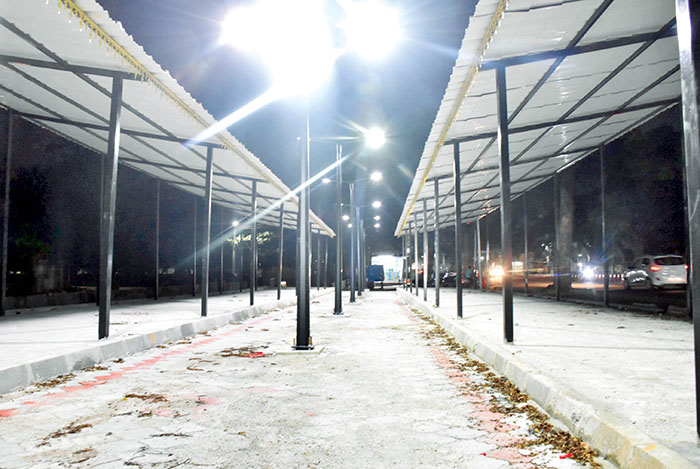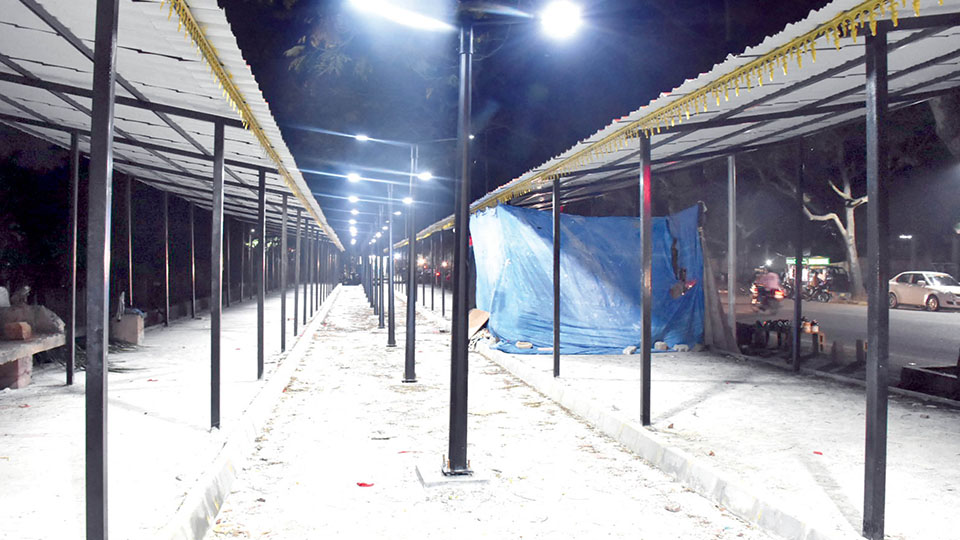Can accommodate 40 food vendors; space for footpath and crowd movement
Mysore/Mysuru: The plan to construct dedicated street food zones at various parts of the city was mooted by the Mysuru City Corporation (MCC) in 2004 and the civic body has been implementing the project at places in stages, despite the bureaucratic delay, fund crunch and after taking into confidence the area elected representatives.
The latest in the block is the dedicated street food zone near Ballal Circle (Ashoka Circle) in Krishnamurthypuram. The zone is in Ward 56, attached to Vedanta Hemmige Circle by the side of the New KantharajUrs Road in Krishnamurthypuram. The exclusive zone, 200 ft in length and 34 ft in width, can accommodate 40 street food vendors. Works are on in final stages and will be opened soon.
This Food Street will primarily cater to fast-food vendors who currently operate on roadsides and footpaths in makeshift stalls. Built at a cost of Rs. 69 lakh, the food zone is nearing completion. The funds for this project have been procured from DeendayalAntyodayaYojana-National Urban Livelihoods Mission (DAY-NULM) and the initiative comes under the MCC Zone 2.
The exclusive food zone is complete with drinking water, parking and proper waste disposal facilities. Electricity connection has been provided so that the vendors can feed the public till the designated time during night hours, said MCC Zone 2 Commissioner Nagaraj.

Each food vendor will get an 11 ft long and 9 ft wide area to sell food and there will be 5 ft space for pedestrians to move around, said MCC Zone 2 Junior Engineer Dayananda.
The initiative addresses the frequent clashes between food vendors and civic authorities, often attributed to delays in identifying and establishing dedicated street food zones. In many instances, vendors face forced eviction with Police assistance.
While MCC authorities assert adherence to Municipal Administration Laws for eviction, vendors cite high-handedness and harassment. The absence of clear guidelines places food vendors at risk of eviction during water-borne disease outbreaks in the summer.
Inspired by Bengaluru’s example, the primary objective of this concept is to consolidate the diverse fast-food joints scattered throughout the city into one central location. This plan aims to accommodate the city’s growing population, which has already exceeded one million.
Mysuru, once known for comprehensive planning during the princely rule, has seen its reputation tarnished by the proliferation of fast-food joints occupying spaces at their discretion, leading to traffic congestion and improper and unhygienic waste disposal, especially in narrow lanes.








Recent Comments